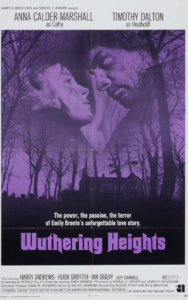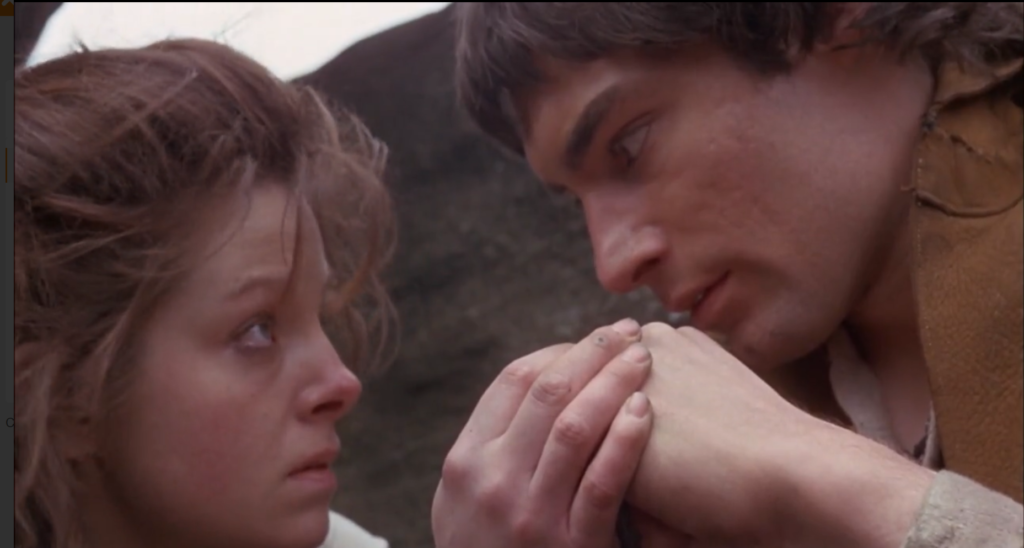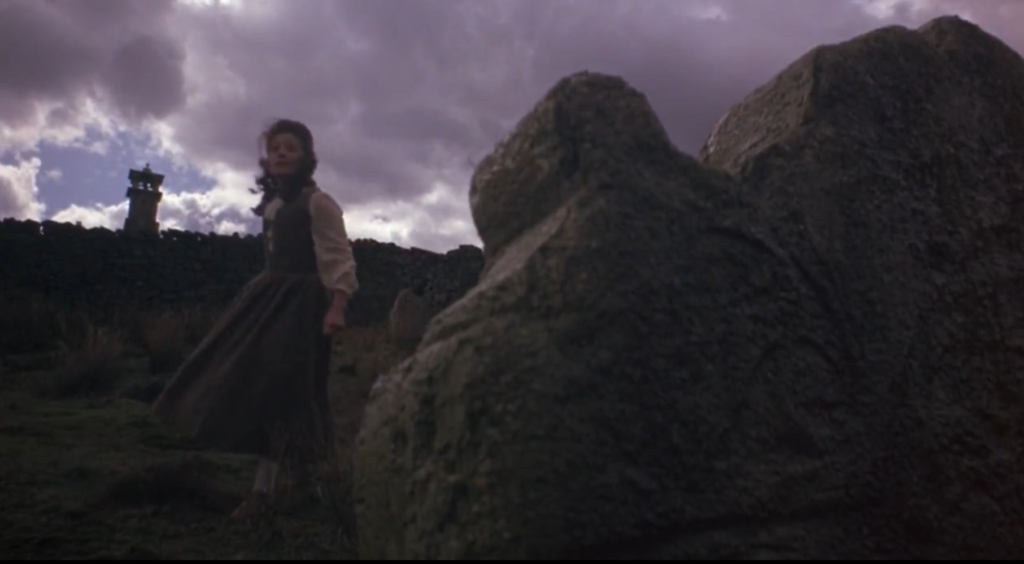|

Synopsis:
A gypsy foundling named Heathcliff is brought by Mr. Earnshaw (Harry Andrews) to live with his daughter Cathy (who quickly becomes Heathcliff’s closest friend) and son Hindley (who is jealous of his new “stepbrother”). When they grow up, Cathy (Anna Calder-Marshall) and Heathcliff (Timothy Dalton) become romantically interested in one another, but find their passions hindered by social mores.
|
|
Genres, Themes, Actors, and Directors:
- Harry Andrews Films
- Historical Drama
- Incest and Incestuous Overtones
- Star-Crossed Lovers
Review:
I had reasonably high hopes for this Arkoff-and-Nicholson produced adaptation of Emily Bronte’s 1847 romantic classic, given how many contributors on IMDb vote it the “best” of the novel’s many cinematic iterations. Unfortunately, it disappoints on nearly every level. The script (by newcomer Patrick Tilley, who only wrote two other little known films) focuses on just the first half of Bronte’s novel, but still manages to feel disjointed and rushed. Years pass without any helpful transitions, and characters develop relationships with one another that are barely explored or explained; most of what we “know” about the story and its passionate characters comes from our knowledge of the novel. Tilley’s dialogue, while it may or may not be authentic to Bronte’s book (which I haven’t read in a number of years), comes across here as either romance-novel cliches (“All of these years I’ve thought of you, in every cloud, and every tree.”) or laughable anachronisms (“Do you want it here, or in bed?”).
Meanwhile, Tilley feels compelled to milk an idea barely hinted at in Bronte’s original novel — that Heathcliff might have been Earnshaw’s illegitimate child, and thus Cathy and Hindley’s half-brother — for all its sensationalistic potential, leading viewers to gasp at the notion that half-siblings might actually be in love/lust with one another. Worst of all, however, are the overwrought performances by nearly everyone involved. Dalton is simply a brooding, dark-browed hulk (somewhat laughably, he’s smeared in grime for the first half of the film to represent his uncouth “gypsy-ness”), while Calder-Marshall is merely snippy and spoiled.

The best aspects of the film (which make it marginally watchable) are its beautiful settings, and Michel Legrand’s memorable score, which is nonetheless badly (over)used.
Redeeming Qualities and Moments:
- Beautiful location cinematography in the Yorkshires

- Michel Legrand’s haunting (if badly used) score
Must See?
No; definitely feel free to skip this one.
Links:
|



One thought on “Wuthering Heights (1970)”
Not must-see. First (and probably last) viewing.
I’ve not read ‘Wuthering Heights’ (though I did manage a reading of ‘Jane Eyre’ in recent past) – just never felt drawn to it. But even if this version (one of many) is not faithful-enough to its source, it still leaves the impression that the novel could be little more than overblown romantic melodrama (though I could, of course, be wrong).
The year this was delivered from director Robert Fuest, he had also given us the quirky cult flick ‘And Soon the Darkness’. Fuest would then go on to the two Dr. Phibes films with Vincent Price. In his handling of ‘WH’, Fuest is certainly not incompetent. A number of scenes early on are nicely handled.
But, once the story kicks in in earnest – it’s a bit too overly-earnest in its rambling and somewhat leaden intensity. Things go downhill and the drama becomes tiresome.
A few interesting actors appear, and are then given little to do: Harry Andrews (‘The Ruling Class’), Hugh Griffith (‘Tom Jones’), Ian Ogilvy (‘Witchfinder General’), James Cossins (‘The Anniversary’).